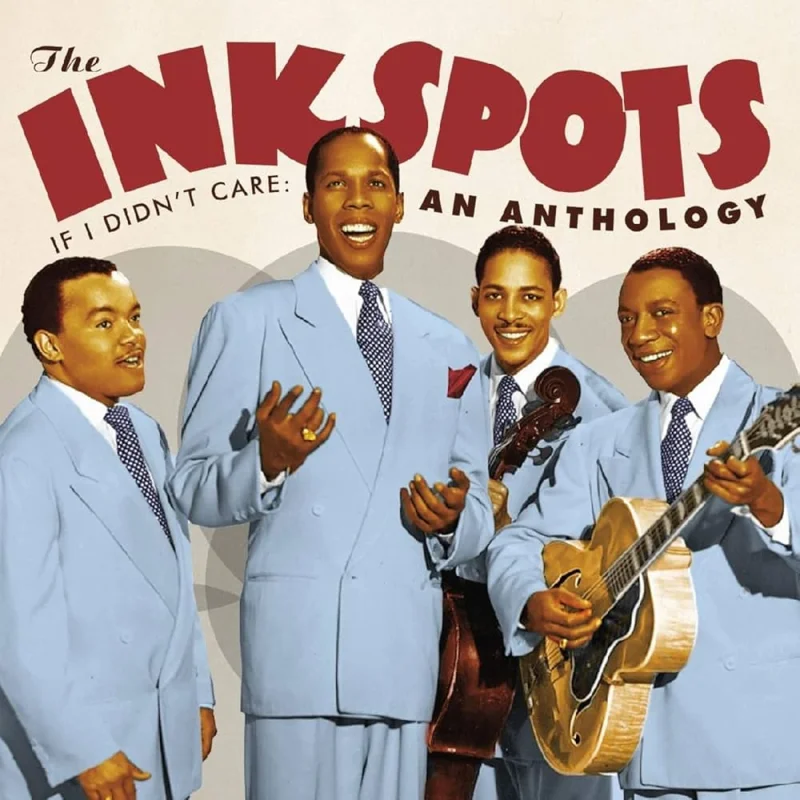Short Summary
The Ink Spots were a pioneering American vocal group that gained fame in the 1930s and 1940s for their unique blend of rhythm and blues, jazz, and pop. Known for their distinctive musical style, characterized by a spoken bass lead and a high tenor, they greatly influenced the development of the doo-wop genre and the rise of rock and roll. Their timeless hits, such as "If I Didn't Care" and "I Don't Want to Set the World on Fire," have left a lasting impact on music history.
Early Life & Education
The Ink Spots were formed in 1934 in Indianapolis, Indiana, originally consisting of members Orville "Hoppy" Jones, Ivory "Deek" Watson, Jerry Daniels, and Charlie Fuqua. Each member brought unique influences and experiences to the group. Jones had a background in gospel music, while Watson and Fuqua were inspired by the innovative sounds of jazz and blues, which were flourishing during their formative years. The group's early experiences performing in local clubs and on the radio helped hone their distinctive sound, leading to their eventual breakthrough in the music industry.
Career Highlights
The Ink Spots achieved national fame with their 1939 recording of "If I Didn't Care," which became one of the best-selling singles of all time. Their career was marked by numerous chart-topping hits throughout the 1940s, including "My Prayer" and "The Gypsy." The group became known for their smooth vocal harmonies and unique format, which featured a spoken-word bass part. Their influence extended beyond music, as they broke racial barriers by performing for integrated audiences during a time of segregation. Despite changes in their lineup over the years, the group continued to enjoy success and maintain their iconic status.
Major Achievements
- Their recording of "If I Didn't Care" sold over 19 million copies, one of the best-selling singles of all time.
- Inducted into the Rock and Roll Hall of Fame in 1989, recognizing their influence on popular music.
- Their song "I Don't Want to Set the World on Fire" was featured in numerous films and television shows, highlighting their enduring appeal.
- Pioneered the doo-wop vocal style, influencing future generations of musicians.
- Performed for integrated audiences, challenging racial norms of the era.
Famous Quotes
- "We sing, and that's what we do." - Deek Watson
- "Music has no color, and it brings people together." - Charlie Fuqua
Interesting Facts
- The Ink Spots' unique vocal style set a template for future doo-wop groups in the 1950s.
- They were one of the first African American groups to reach a broad audience across racial lines.
- Despite multiple changes in their lineup, the group managed to maintain their signature sound.
- They were among the first groups to use a guitar as a rhythmic backing instrument rather than for solos.
- Their music has been covered by numerous artists, demonstrating its timeless appeal.
Legacy / Influence
The Ink Spots' innovative vocal style and crossover appeal significantly impacted the music industry. They laid the groundwork for the doo-wop genre and influenced countless rock and roll and R&B artists that followed. Their success in breaking racial barriers paved the way for future African American musicians to reach mainstream audiences, making them not only musical pioneers but also cultural icons.
FAQ
Q: Why are The Ink Spots famous?
A: They are famous for their pioneering vocal style and significant influence on doo-wop and popular music.
Q: What is their most famous song?
A: "If I Didn't Care" is one of their most famous songs, known for its massive commercial success.
Q: When did The Ink Spots form?
A: They formed in 1934 in Indianapolis, Indiana.
Q: Were The Ink Spots inducted into the Rock and Roll Hall of Fame?
A: Yes, they were inducted in 1989.











